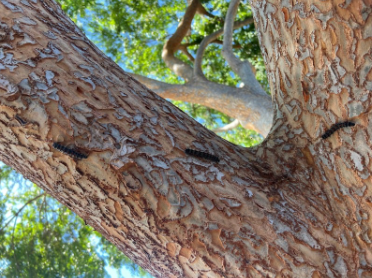The Omicron Variant: Should We Be Concerned?
February 28, 2022
The B.1.1.52 variant, also known as the Omicron variant, is the newest strain of coronavirus. First detected in specimens collected on November 11 and 14 in Botswana and South Africa, the variant has currently been detected in 25 states. But what is this variant, how can we stay safe, and should we be concerned?
Defined by the World Health Organization as a “Variant of Concern,” the difference in transmissibility and severity of Omicron is somewhat unknown compared to the original disease, Covid-19. Information provided by the World Health Organization shows an increase of transmissibility in areas of South Africa that have been affected by the variant.
“Epidemiologic studies are underway to understand if it is because of Omicron or other factors,” states the World Health Organization on the transmissibility of Omicron in South Africa.
The severity of the disease is also still unknown. Additional information provided by the World Health Organization shows an increase in hospitalization in South Africa but this may be because of an increased amount of “people becoming infected, rather than a result of specific infection with Omicron.”
Taking that into consideration, the one major difference that this variant possesses is an “increased risk of reinfection,” as shown by preliminary evidence conducted by the World Health Organization.
Despite the limited information we have, the Omicron variant, as well as the Delta variant, are considered variants of concern, and their effect can be reduced with similar precautions to Covid-19.
“All FDA-approved or authorized vaccines are expected to be effective against severe illness, hospitalizations, and deaths,” states the CDC. “Fully vaccinated people who become infected with the Omicron variant can spread the virus to others.” As well as vaccinating, it is suggested to wear a mask since it can “reduce the spread of earlier forms of the virus, the Delta variant and other known variants.”
As long as we can take these precautions, we can reduce the spread of both Omicron and Covid-19. Knowing this information, the real question is how it will affect school life.
“There is no evidence to suggest we are going to need to close our schools and colleges,” states secretary of state for education in the United Kingdom, Nadhim Zahawi. Even with Britain reporting, it’s the first death of Omicron on December 13th, the schools are open, and are planning to stay open. Until severity increases, we shouldn’t see a change in American schools or other places around the world. Even students at San Pasqual High School aren’t planning to change their school schedule because of Omicron.
In an interview with San Pasqual Student Taylor Clark, she believes that this variant shouldn’t change anything. “Because I’m vaccinated, and as long as the CDC knows that I will be safe while following their safety measures, I’m fine to go to school with others taking the same precautions.”
With the little information we currently have, I don’t believe that schools or people should be concerned about the variant. Even with recent deaths as a result of the variant, as long as we take the same precautions that we took towards Covid-19, the CDC believes that this will be effective against severe illness, hospitalizations, and deaths.








